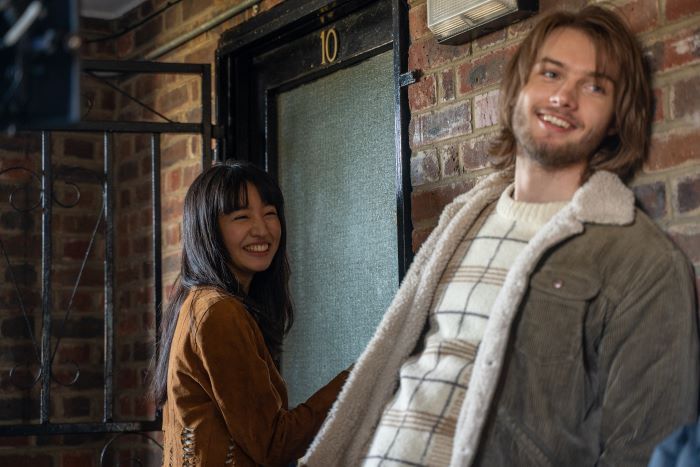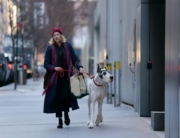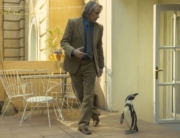Best known for his turbo-charged thrillers (Beast, Adrift), Icelandic director Baltasar Kormákur shifts gears with this subtle, romantic melodrama that blends elements of Past Lives (reconnecting with a lost love) and The Notebook (an Alzheimer’s diagnosis), without the profundity of the first film and the sappiness of the second.
Adapted from Ólafur Jóhann Ólafsson’s best-selling novel, the film opens in a wintry Icelandic village where lonely aging widower and restaurateur Kristófer (a stoic Egill Ólafsson) spends his days singing in a men’s choir and sitting in his empty house listening to the ticking of the clock (a slightly heavy-handed Bergmanesque touch). His time is running out as a medical appointment reveals. While the doctor needs an MRI to confirm a diagnosis of dementia, he advises his patient “to take care of any unfinished business.”
At home, Kristófer pulls out an old student ID and notebook, and memories of a lover in London 50 years ago flood back. Although it is March 2020 and the world is about to shut down as the Covid pandemic spreads, Kristófer ignores the news and his stepdaughter’s pleas. After whispering “Forgive me” to a photograph of his late wife, the elderly man embarks on an epic global journey from London to Japan to find the woman who disappeared from his life a half-century ago.
In 1969 London, young Kristófer (a sweet-faced Pálmi Kormákur, the director’s son) impulsively quits his studies at the London School of Economics (after his friends tease him about his socialist politics) and takes a job as a dishwasher at Nippon, a Japanese restaurant owned by Takahashi-san (Masahiro Motoki). As he stands in the restaurant’s doorway on his first day of work, a young woman behind him touches his shoulder and brushes past him: Miko (a charismatic Kôki), his boss’s beautiful and high-spirited daughter.
Kristófer is instantly smitten, but Kormákur does not rush the developing love story. Instead, the storyline follows the budding friendship between Takahashi-san and Kristófer as the young man discovers a passion for cooking and Japanese culture—the kitchen scenes in which the staff share haikus are lively and charming.
But as Kristófer draws closer to Miko and they embark on a passionate affair, he senses a tension between father and daughter that connects to their past trauma in Hiroshima. Although the couple keeps their relationship secret, Kristófer is shocked to discover on returning from the Christmas holidays that Takahashi-san has closed the restaurant and returned to Japan with Miko.
Editor Sigurður Eyþórsson skillfully weaves the flashbacks with the present-day scenes into a seamless whole, aided by cinematographer Bergsteinn Björgúlfsson’s effective contrasting of cool blue tones that evoke the chilliness of a locked-down pandemic world with the golden sepia images of a nostalgic past. Likewise, production designer Sunneva Ása Weisshappel vividly captures these opposing moods with her cheery bakery-turned-restaurant kitchen and adult Kristófer’s desolate home.
Unfortunately, the director’s uneven handling of the pandemic distracts from the central romance and adds nothing to the suspense of whether the two lovers will be reunited. A scene of Kristófer dining alone in an empty London hotel hints at the frightening spookiness of the pandemic’s early days, but our protagonist jets too easily around the world at a time when millions of travelers were trapped by border closures. After Kristófer arrives in Tokyo, he hangs out in a karaoke bar. Really? Traveling to Hiroshima on the bullet train, he wears a surgical mask, but not over his nose!
Despite the formulaic, flat finale in which dramatic revelations are condensed into 15 minutes, the touching acting of the four appealing romantic leads (a sensitive Yoko Narahashi, the film’s casting director, plays the older Miko) and the theme of how a devastating historical event can shatter the lives of succeeding generations will resonate with viewers.

















Leave A Comment